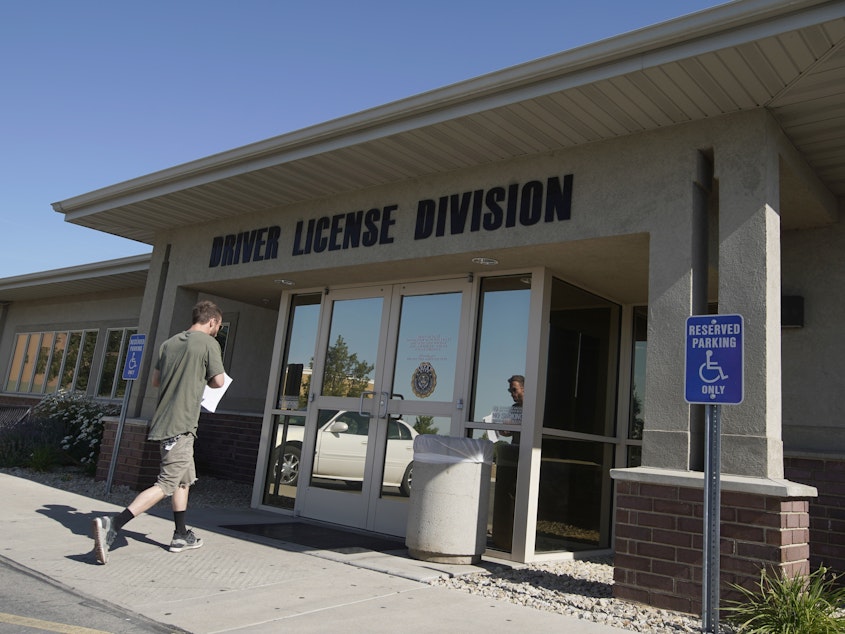Census Bureau Asks States For Driver's License Records To Produce Citizenship Data

The Census Bureau is asking states to voluntarily share driver's license records as part of the Trump administration's efforts to produce detailed data about the U.S. citizenship status of every person living in the country.
According to a statement the bureau released Tuesday, the requests are in response to an executive order President Trump issued in July after courts blocked his administration from adding a citizenship question to 2020 census forms.
That order essentially repackages a 2018 directive from Commerce Secretary Wilbur Ross, who oversees the bureau and ordered the compiling of records from other federal agencies and state governments.
"When the Census Bureau receives the records, they are stripped of all personal identifiable information and are used for statistical purposes only," the bureau said in its statement.
Faced with growing public reluctance to participate in its surveys, the bureau has turned to existing government records to try to fill in gaps in the incomplete responses it collects. Many state agencies currently share with the bureau records about food assistance programs, for example, including the Supplemental Nutrition Assistance Program, or SNAP, also known as food stamps.
Sponsored
The bureau's statement comes after recent reports by the AP and other news outlets about the agency's recent interest in driver's license records.
Some states, including Maine, are refusing to cooperate with the bureau.
The administration — which initially said it wanted citizenship question responses to better protect the voting rights of racial and language minorities — says it now wants to produce citizenship information for states to use when redrawing voting districts after the 2020 census. The bureau recently confirmed, however, that not a single state official told the agency that there was a need to include citizenship information in redistricting data.
Thomas Hofeller, a prominent GOP strategist who died last year, concluded that detailed citizenship data could be used to give a political advantage to Republicans and non-Hispanic white people for the next decade after redistricting.
Last month, Latinx community groups in Texas and Arizona filed a federal lawsuit against the administration to block it from using government records to produce citizenship information.
Sponsored
The groups, represented by attorneys with the Mexican American Legal Defense and Educational Fund and Asian Americans Advancing Justice - AAJC, argue that efforts to generate this citizenship data are part of a conspiracy to prevent the fair political representation of Latinx communities, noncitizens and other immigrants.
They also contend that some of the records may be out-of-date and would not be reliable indicators of whether or not a person is currently a U.S. citizen.
The bureau has not finalized exactly what records it plans to use to produce citizenship data in time for the next round of state and local redistricting beginning in 2021. Last month, the bureau's chief scientist, John Abowd, announced it has set as a deadline for those plans March 31 — the day before Census Day. [Copyright 2019 NPR]



